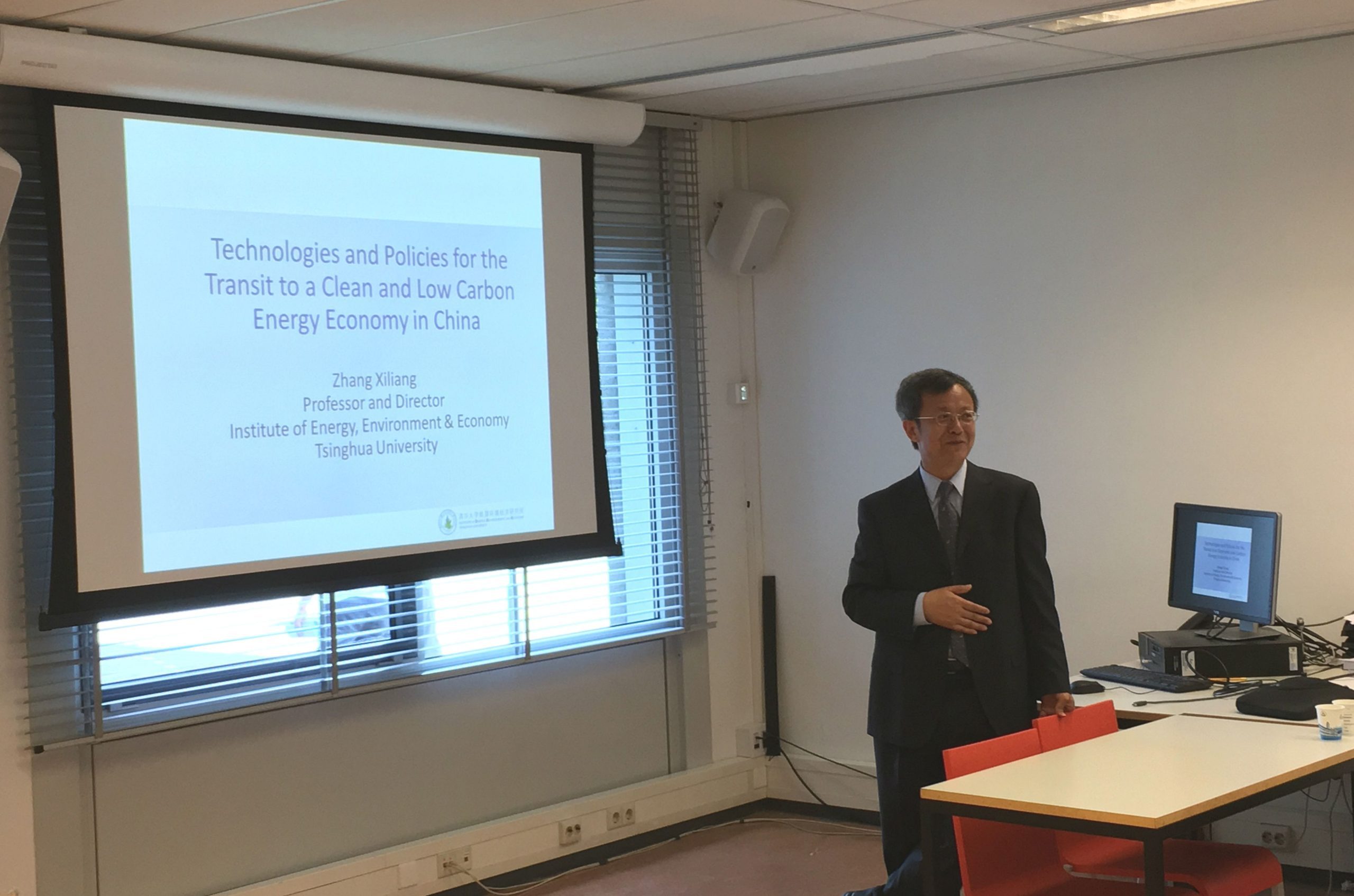The world has been shocked by images of Beijing that have appeared online in recent years. Commuters wearing special breathing masks have become a common sight on the city’s streets, which are often completely clouded with smog during the winter months.
Professor Xiliang Zhang, the Director of the Institute of Energy, Environment and Economy at Beijing’s Tsinghua University has devoted much of his attention to coming up with practical ways to, literally, clear the air in China’s largest cities. He is currently leading two projects that aim to reduce the country’s air pollution and help it transition to a clean and low carbon economy. Dr. Zhang discussed them during a lecture at TU Delft on July 3, 2016.
China’s rapid economic developments over the past few decades have boosted the nation’s overall quality of life but they’ve come at a high cost. In addition to waterways clogged with trash and human waste, air pollution is a big problem. In 2011, China was the nation that was ranked as the world’s worst producer of CO2 emissions.
“We are still one of the world’s largest CO2 emitters,” Dr. Zhang said during the lecture. “We really need to take action. Over the past twenty years, emissions have increased sharply.”
During the 2015 United Nations Climate Change Conference in Paris, Chinese officials pledged to reach various benchmarks by 2030 that should drastically improve their nation’s air quality. Among them: increasing the usage of alternative fuels, reducing China’s CO2 intensity by 60% from 2005 levels and increasing its forest stock by 4.5 billion cubic metres.
Reaching these goals won’t be easy but Dr. Zhang remains confident that China can get the job done. He outlined several additional policy measures that include increasing the country’s annual natural gas consumption from its current 400 billion cubic metres to 600. Transitioning from coal power plants to more efficient energy sources like hydro, wind, solar and even nuclear plants will be another vital step in the process.
Dr. Zhang also noted efforts to phase out archaic production plants, improve energy efficiency standards for buildings and encourage Chinese households to purchase environmentally-friendly electronics and other products. He also thinks that governmental efforts to put pressure on regional leaders to promote green policies will definitely help, as will strictly enforcing new regulations.
“We still need an evaluation system so that these promises will be kept and these targets will be reached,” Dr. Zhang said. “The central government will need to go to the provinces to check that the goals are being achieved.”



Comments are closed.